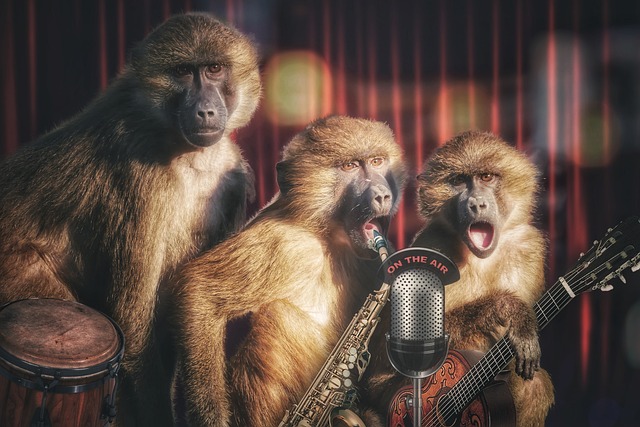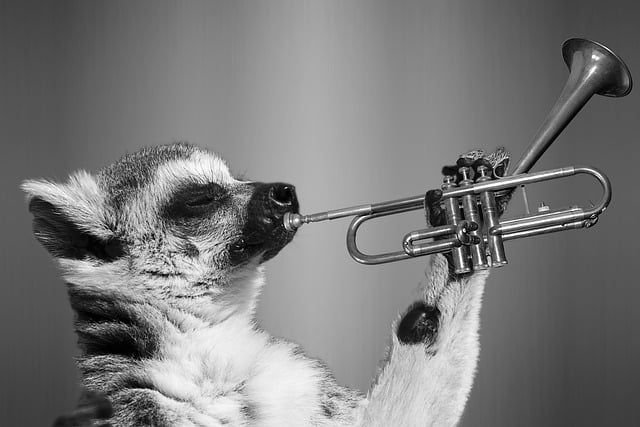Discover How Tunes Affect Our Furry Friends
Music has always been a fundamental part of human culture, but have you ever wondered if your pet enjoys the tunes you play? Do animals like music? Research suggests that animals can indeed appreciate certain types of music, with varying preferences and reactions depending on the species and even the individual animal.
Music and Dogs
Research has shown that dogs have distinct reactions to different types of music. In a study conducted by Dr Deborah Wells, it was found that classical music has a calming effect on dogs. The dogs in the study showed signs of relaxation when classical music was played, such as lying down and being quiet.
Another study, conducted by the Scottish SPCA and the University of Glasgow, suggests that dogs prefer reggae and soft rock over other musical genres.
During the study, 5 types of music were played to dogs staying in kennels; soft rock, Motown, pop, classical and reggae. The study showed that, overall, the dogs experienced the greatest decrease in stress levels when listening to soft rock and reggae.
On the other hand, heavy metal music seemed to increase agitation and anxiety, leading to more barking and other signs of distress. Pop music and human conversations, however, had little to no effect on the dogs’ behavior.
One real-world application of this knowledge comes from Lisa Spector’s nonprofit, “Music in Shelters.” This organization plays soothing classical music in animal shelters to create a peaceful environment, which has been shown to increase adoption rates. The calming music helps reduce the stress and anxiety that shelter animals often experience, making them more approachable to potential adopters.
Cats and Music
Cats, known for their independence and sometimes finicky nature, also prefer certain types of music. Researchers at the University of Wisconsin-Madison found that cats respond more positively to music that incorporates feline vocalizations and tempos that mimic a cat’s purring and heartbeat. This species-specific music is designed to be more appealing to cats, and studies have shown that it can help reduce stress and anxiety in feline listeners.
David Teie, a composer and cellist, has even created an album called “Music for Cats,” which features tracks specifically designed to appeal to feline auditory senses. The music includes sounds that mimic bird chirps and purring, which are familiar and comforting to cats. Owners who have played this music for their cats report that their pets seem more relaxed and content while listening.
Music and Milk Production in Cows
In an unpublished study, researchers Dr Adrian North and Liam McKenzie from the University of Leicester found that playing music for dairy cows had an unusual impact on their milk production. The cows produced more milk when listening to relaxed, slow music, like ‘Everybody Hurts’ by REM and Beethoven’s ‘Pastoral Symphony.’ During the study, the cows produced an extra 3% of milk per day when they were played this type of music.
Birds and Music: A Melodious Connection
Birds are known for their natural musical abilities, with many species producing complex songs and melodies. Studies have shown that birds can also appreciate human music. For example, parrots have been observed bobbing their heads and moving in rhythm to the music, displaying behavior that suggests they can feel the beat and enjoy the tunes.
In one study, researchers played different genres of music to a group of parrots and found that the birds had individual preferences. Some parrots showed a preference for classical music, while others enjoyed pop and rock. This indicates that, like humans, birds have diverse musical tastes and can derive pleasure from listening to music.
The Science Behind Animals and Music
Understanding why animals react to music in these ways involves looking at their sensory systems and brain functions. One hypothesis is “acoustic masking,” which suggests that music can help mask stressful or unpleasant sounds in an animal’s environment. For instance, playing music in a loud animal shelter can help drown out the noise of barking dogs, creating a calmer atmosphere.
Another hypothesis is “sensory stimulation,” which posits that music enriches an animal’s environment by providing additional auditory stimuli. This can be particularly beneficial for animals in captivity, such as zoo animals or pets that spend a lot of time indoors. Music can help prevent boredom and improve overall well-being by offering a form of mental stimulation.
Finally, the “arousal modulation” hypothesis suggests that music can influence an animal’s emotional state by either calming or exciting them. For example, calming music can help reduce stress and anxiety, while more upbeat music can stimulate and energize animals. This effect has been observed in various species, from dogs and cats to birds and even primates.
Do Animals Understand Music?
While animals may respond to music, understanding whether they actually enjoy it in the same way humans do is more complex. Researchers like Pralle Kriengwatana from KU Leuven in Belgium are exploring how animals perceive and process music. Through behavioral tests, they aim to determine which elements of music animals respond to and why.
In her research, Kriengwatana has trained birds to recognize and respond to different sound patterns, helping to identify which aspects of music are most meaningful to them. This work suggests that animals’ appreciation of music may be tied to their communication systems and natural vocalizations.
Real-Life Implications: Music Therapy for Animals
The practical applications of this research are vast. Animal shelters, zoos, and pet owners can use music as a tool to improve the welfare of animals in their care. Playing the right type of music can help reduce stress, anxiety, and even behavioral problems in animals.
For example, animal shelters have started using music therapy to create a more calming environment for their residents. Classical music and specially designed compositions for cats and dogs are played to help soothe the animals and make them more comfortable. This not only improves the animals’ quality of life but also makes them more appealing to potential adopters.
In zoos, music can be used to enrich the environment for animals, providing mental stimulation and reducing the negative effects of captivity. Zoos can tailor the type of music played based on the species and individual preferences of the animals, ensuring that it has a positive impact on their well-being.
The Power of Music for Our Animal Friends
The evidence is clear: animals can and do respond to music, with different species and individuals showing varied preferences. Whether it’s the calming effects of classical music on dogs, the species-specific compositions for cats, or the rhythmic responses of birds, music has the potential to significantly enhance the lives of animals.
As researchers continue to explore this fascinating field, we can look forward to a deeper understanding of how music affects animals and how we can use it to improve their well-being. So the next time you turn on your favorite playlist, consider sharing it with your furry, feathered, or finned friends – they might just appreciate it more than you think.







